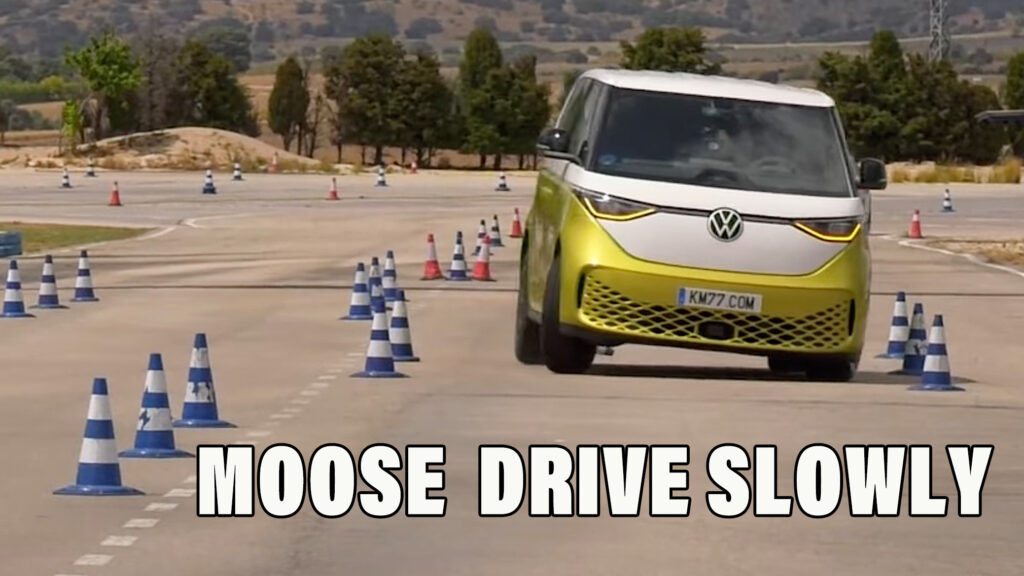Electric minivan keeps the cone kills to a minimum, and outperforms its ICE T7 cousin, but at least one EV rival is faster
5 hours ago
 –>
–> 
–>
VW’s ID. Buzz electric minivan is not the speediest box on the block, especially in short wheelbase, Euro-spec guise. While the new long-wheelbase variant (the only version offered in the U.S.) comes with a 282 hp (286 PS / 210 kW) motor or 330 hp (335 PS / 246 kW) courtesy of dual motors, the basic Euro van makes do with just 201 hp (204 PS / 150 kW) and needs over 10 seconds to reach 62 mph (100 km/h).
But the elk lovers at Spain’s KM77 only needed a fraction of even that modest power output when threading the SWB Buzz through their moose test cone course this month. The Buzz didn’t disgrace itself, unlike some other EVs, such as the Mustang Mach-E, and it performed better than its T7 Multivan cousin, but KM’s test showed that the retro EV was considerably slower than a rival electric minivan.
The evaluation starts with a slalom test, where the Buzz acquits itself well. There’s some body roll and the slow-ish steering spoils the sense of agility, but it looks tidy and completes the course in 25.7 seconds. For context BMW’s X1 sDrive18d needed 25.5 seconds, the Range Rover Sport PHEV took 26.1 seconds and VW’s own T7 Multivan, 26.5 seconds.
Related: 2025 VW ID. Buzz Lands In U.S. As A Long-Boy With More Power, More Seats, And More Battery
[embedded content]
Things don’t go quite so well in the classic moose test, the first attempt at 76 km/h (47 mph) resulting in a stack of cones being ploughed, and other attempts seen in slow motion showing the front end of the van rocking from side to side during the right hand turn as the ESP bites and releases the brakes. Dropping the speed down to 71 km/h (44 mph) lets the Buzz slip between the cones, but even at that speed the VW relies heavily on its ESP system.
The important thing is that it looks stable and relatively easy to control, while Buzz fans will be pleased to hear that even though the 71 km/h best pass is hardly rapid, it still puts the Buzz comfortably ahead of the T7 Multivan, which couldn’t beat 69 km/h (43 mph).
advertisement scroll to continue
But that speed also puts it behind another electric minivan, China’s Maxus Euniq 5. The softly-sprung Maxus was much slower through the slalom (26.7 seconds), but blitzed the cone course at 76 km/h, a feat KM’s testers put down to its superior ESP system.

 <!–
<!– –>
–> 